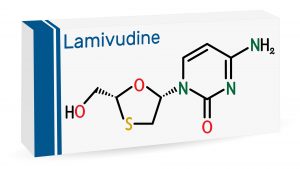
An antiretroviral drug that is traditionally used to treat HIV – known as lamivudine – has been shown to improve cognitive abilities in a mouse model of Down syndrome.
A collaborative study between researchers at the Centre for Genomic Regulation (CRG) and the IrsiCaixa AIDS Research Institute has potentially identified drug intervention that improves Down syndrome cognition. Researchers discovered that lamivudine improves cognitive function in mouse models of the condition.
Although further clinical studies in humans are required to validate the therapeutic effects of lamivudine, the findings highlight the potential of pharmacological interventions for treating cognition problems caused by Down syndrome.
The study is published in the Journal of Cellular and Molecular Medicine.
Cognitive impairment from Down syndrome
Babies are usually born with 46 chromosomes; however, babies with Down syndrome have an extra copy of the 21st chromosome. This additional chromosome causes mild to moderate intellectual disability that impacts cognition, such as memory, attention span, and language capabilities. Moreover, adults with Down syndrome experience accelerated ageing, meaning cognitive decline occurs more rapidly than the general population.
The 21st chromosome carries a gene called amyloid precursor protein (APP), which causes amyloid proteins to build up in the brain and is associated with an increased risk of Alzheimer’s disease. Accumulation of amyloid proteins is common in people with Down syndrome older than 40.
Current treatment options
Currently, there are no pharmacological interventions for improving cognitive function in people with Down syndrome, with one of the few options being cognitive stimulation therapy. The researchers explored the effectiveness of retrotransposons, which are segments of DNA that change their location in the genome by creating RNA copies of themselves that jump back into the DNA at another location.
By positioning themselves in different areas of the genome associated with neurodegenerative diseases, retrotransposons can enhance their activity, and rates of retrotransposition increase with age and cellular senescence.
Retrotransposons and HIV bare some similarities, as they both replicate rapidly within cells. This led the team to theorise that implementing inhibitors – such as lamivudine – that target the replication of HIV could be employed to block retrotransposons.
Dr Bonaventura Clotet, the Director of IrsiCaixa, commented: “Both HIV and retrotransposons need the same molecule to make copies of themselves: the reverse transcriptase enzyme. We know that lamivudine, a reverse transcriptase inhibitor used against HIV, was shown in aged mice to decrease the activation of retrotransposons which could be linked to age-associated disorders. Therefore, we thought that it could be useful to counteract the cognitive impairment associated with Down syndrome.”
The effects of lamivudine
Lamivudine is a prescription drug that is approved by medical authorities in the United States and Europe for treating HIV in children and adults. For their investigation, the researchers utilised Ts65Dn mice, which is the most widely studied Down syndrome animal model to date.

The mice were administered lamivudine for four months and compared to a control group that received water. The team performed a range of behavioural experiments used to assess locomotor activity, recognition memory and anxiety. The results illuminated that the mice receiving lamivudine displayed improved cognition, with the team believing this may be due to the drugs’ effects on one or more variants of the APP gene.
Dr Mara Dierssen, a researcher at the CRG and co-author of the study, concluded: “Our work aims to support people with Down syndrome and their families by providing them more options to live independent lives, particularly those affected by early-stage Alzheimer’s disease.
“We still need pharmacological treatments that consistently help improve memory, attention and language functions, or prevent cognitive decline associated with ageing. This study is one step aiming to change that, revealing retrotransposition as an interesting mechanism to pursue not only in ageing but also in neurodevelopmental disorders.”
The scientists are now planning to conduct a clinical trial of lamivudine with individuals with Down syndrome and Alzheimer’s disease.

























